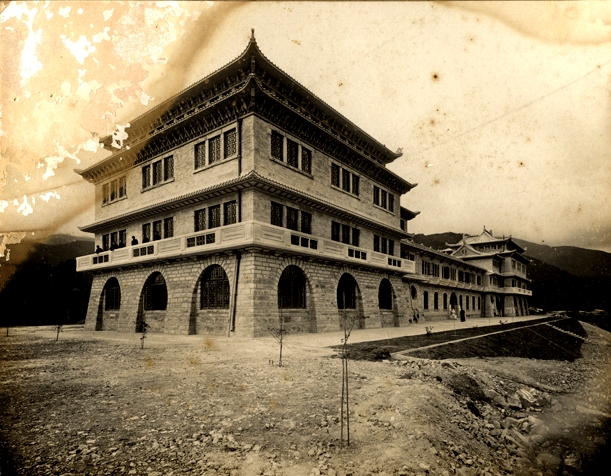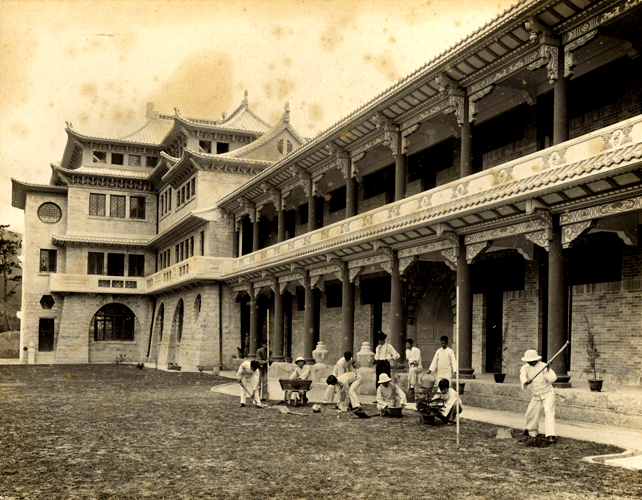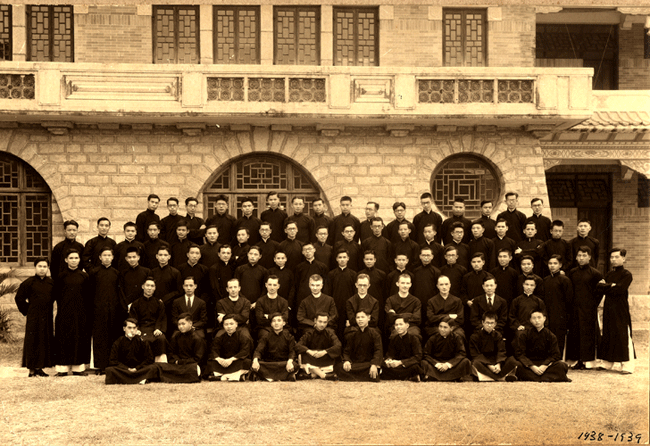
Goals
The Holy Spirit Seminary College of Theology and Philosophy (HSSC) was established in 1970 to serve the Catholic Diocese of Hong Kong as an academic center for the study of theology and philosophy. It provides theological and philosophical training for those preparing for the ordained ministry, religious, and lay people.
In 2025, three new institutes are established: the Holy Spirit Institute of Theology (HSIT), Holy Spirit Institute of Philosophy (HSIP) and Holy Spirit Institute of Religious Scicences (HSIRS). These new institutes take up the responsibility of all academic affairs of their own programmes independently, while HSSC remains to provide resources and administrative support to the new institutes.
Development
The origin of Holy Spirit Seminary College of Theology and Philosophy dates back to the early foundation of the Regional Seminary for South China (1931-1964). The purpose of the foundation was the formation of local clergy for the South China District who could then serve in their local dioceses after their priestly ordination. The South China District comprised the dioceses of Shaoguan, Wuzhou, Guangzhou, Jiangmen, Jiaying, Shantou, Dingzhou, Xiamen, Fuzhou, Jianning, Funing, Beihai, Qingxian and Hong Kong. However, in 1964, when the above dioceses were not sending any of their seminarians for formation, the Congregation of Propaganda Fide closed the Regional Seminary and transferred the premises to the Hong Kong Diocese, which in the same year on the same premises set up its diocesan seminary, naming it “Holy Spirit Seminary,” thus implementing the directive of Vatican II that the formation of seminarians and priests should be localized.
Thereafter, to meet the ongoing needs of the local church, the Holy Spirit Seminary College of Theology and Philosophy was established and keeps evolving:
Year Description 1970 Holy Spirit Seminary College of Theology Philosophy (HSSC) was established through the collaboration of the Hong Kong Diocese, the Macau Diocese, the Society of Jesus (Jesuits) and the Salesians of Don Bosco. Then in 1985, the Order of the Franciscan Minors was invited to join them. 1973 In order that the laity might have an opportunity to deepen and widen their knowledge of God, since they too can be effective instruments in building God’s Kingdom, the Seminary College was opened to the laity in 1973. 1974-76 The Theology and Philosophy Divisions of the College were affiliated to the Pontifical Urbaniana University of Rome in 1974 and 1976 respectively; thus making it possible for students taking theology and philosophy to obtain the degrees of Bachelor of Theology and Bachelor of Philosophy. 1989 A further step was taken, when in 1989, in order to fulfil the desires and needs of the laity for a degree course in theology, the Seminary College was expanded with the opening of the Higher Institute of Religious Sciences, endorsed by the Faculty of Theology of the Pontifical Urbaniana University. Those who have completed the necessary requirements in this Institute will obtain the degree of Bachelor in Religious Sciences. 1994 In 1994, with the consent of the Pontifical Urbaniana University, the Theology Division started a two-year programme leading to the degree of Licentiate in Theology (L.T.). This required upgrading the status of the Theology Division from that of affiliation to aggregation with respect to the Pontifical Urbaniana University. On March 6th, 1997, the Holy See's Congregation for Catholic Education upgraded the Theology Division, aggregating it to the Theology Faculty of the Pontifical Urbaniana University. 2025 The college moves to a new phase. The aggregation relationship between the Pontifical Urbaniana University and the College ended at the end of August. The Theology Division is then aggregated to the Faculty of Theology of the Pontifical Gregorian University (PUG) of Rome instead, offering programmes conferring Baccalaureate and Licentiate degrees in Theology by PUG. The Philosophy division will also be affiliated to PUG Faculty of Philosophy, expanding its two-year philosophy diploma programme to a three-year Baccalaureate programme. The Higher Institute of Religious Sciences is linked to the Fu Jen Faculty of Theology of St. Robert Bellarmine in Taiwan, offering a religious sciences programme that confers Fu Jen's Baccalaureate in Religious Sciences degree.
To cope with the above changes, three new institutes are established: Holy Spirit Institute of Theology (HSIT), Holy Spirit Institute of Philosophy (HSIP), and Holy Spirit Institute of Religious Sciences (HSIRS). Each institute takes up the responsibility of all academic affairs of its own programmes independently. HSSC remains to provide resources and administrative support to the new institutes.


